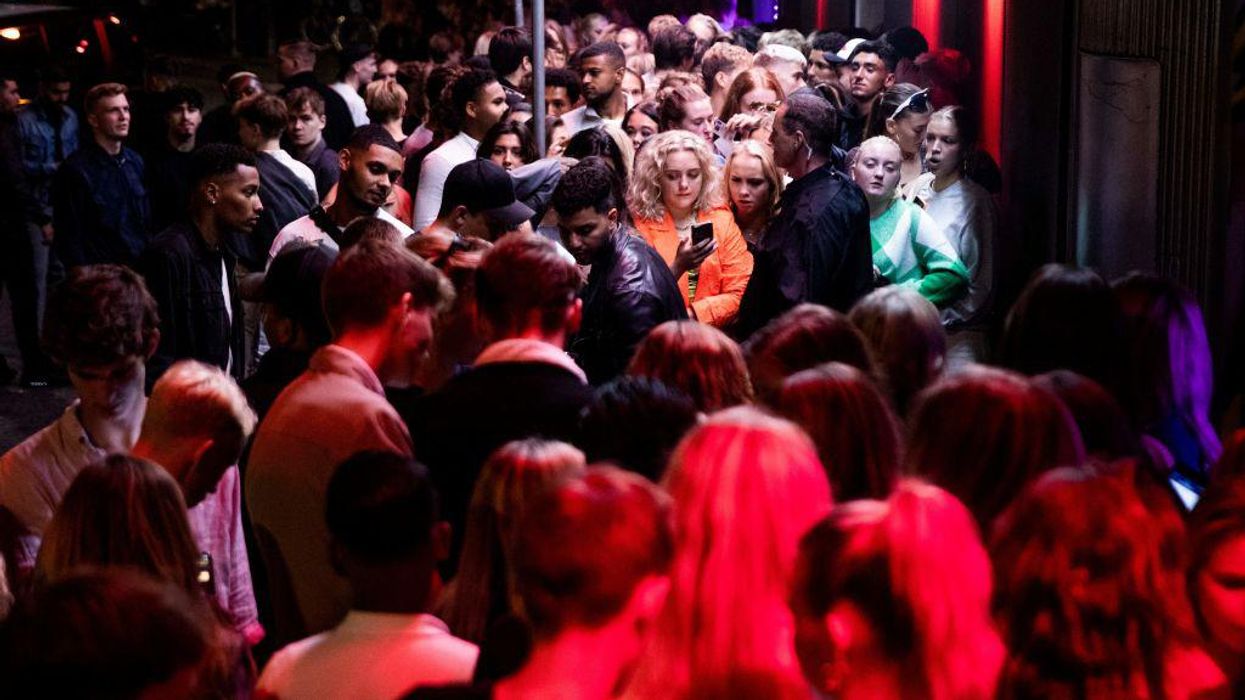
OLAFUR STEINAR GESTSSON/Ritzau Scanpix/AFP via Getty Images

Denmark has decided to end nearly all of its COVID-19 pandemic restrictions on Feb. 1. The decision to reopen was based on a recommendation from the Danish Epidemic Commission to no longer classify COVID-19 as a "critical threat" to society.
Danish Prime Minister Mette Frederiksen proclaimed on Wednesday at a press conference in Copenhagen, "We say goodbye to the restrictions and welcome the life as we knew it before corona. As of Feb. 1, Denmark will be open."
Frederiksen said the vaccinations against COVID-19 have been a "super-weapon" that has provided Denmark with "a solid defense against infection that continues."
"That’s why the government decided that coronavirus should no longer be considered a threatening disease for society," Frederiksen noted.
"It is due to the Danes' goodwill to be vaccinated — also with a third dose — that the restrictions can now be lifted," Frederiksen stated. "With the high vaccine adherence, it is possible to break the connection between the number of infected and the number of hospitalized."
More than 80% of Denmark’s population has received two doses of the COVID-19 vaccine, and more than 60% has received a third dose, according to the Danish Health and Medicines Authority.
Starting on Tuesday, Danes will enjoy unfettered access to restaurants, cafes, museums, and nightclubs as the country ends vaccine passports. Mask mandates will also cease in public transportation, restaurants, and stores. Beginning on Feb. 1, face masks will only be required in hospitals, healthcare facilities, and nursing homes.
While domestic COVID-19 restrictions will almost entirely disappear on Feb. 1, there will still likely be some protocols for international travelers.
"Denmark intends however to keep some border measures in place for another four weeks, including tests and/or quarantine depending on travelers' immunity status," the Daily Mail reported.
"According to Health Minister Magnus Heunicke, Denmark's recent cases of COVID were more than 46,000 daily on average; however, only 40 people are in hospital intensive care units," according to Newsweek.
"We continue with a strong epidemic surveillance," Heunicke declared. "Then we ... can react quickly if necessary."
Frederiksen added, "It may seem strange that we want to remove restrictions given the high infection rates. But fewer people become seriously ill."
"The Danish Health Authority said that 35 percent of those in hospital with Covid were actually in hospital for another diagnosis," The Local Denmark reported.
Other European nations are also significantly curbing their COVID-19 restrictions during the current Omicron wave.
Starting on Thursday, England halted its mask mandate – including in classrooms. The requirement for proof of vaccination is no longer needed for entry into nightclubs and other large venues, according to ABC News. The restriction on the number of visitors allowed into British nursing homes and long-term care facilities has also been lifted.
In the Netherlands on Wednesday, for the first time in a month – restaurants, bars, museums, and theaters reopened.
Netherlands Prime Minister Mark Rutte said on Tuesday, "We are taking a big step today to unlock the Netherlands while the infections numbers are really going through the roof."
In Sweden, authorities hinted that they would begin to lift COVID-19 restrictions starting on Feb. 9.
During a Wednesday press conference, Sweden's Health Minister Lena Hallengren declared that most COVID-19 restrictions would be relaxed on Feb. 9 as long as the situation allows.
Karin Tegmark Wisell – director-general of the Public Health Agency – speculated that Sweden's "peak will be reached in the next few weeks."
"At the same time we can clearly see that the pandemic has entered a new phase," Wisell stated. "It is our assessment that another two weeks [of restrictions] should be enough to make it past the peak. In this time another million people will get the opportunity to get vaccinated."
In Finland, Prime Minister Sanna Marin wrote on Twitter, "The government will assess the necessity of (the) restrictions."
Marin said Finland "should consider opening low-risk cultural and sports events with a COVID pass and extending the opening hours of restaurants on a quicker schedule than was previously estimated."